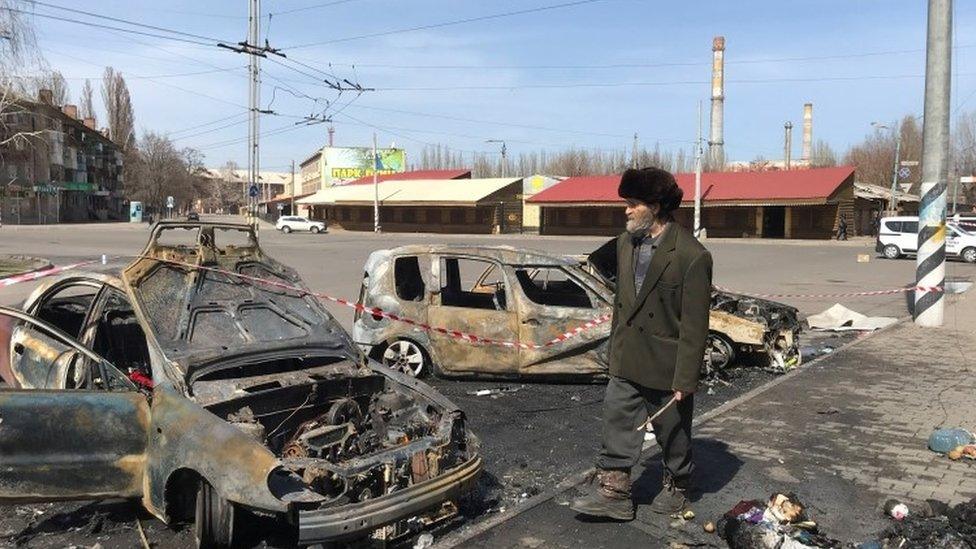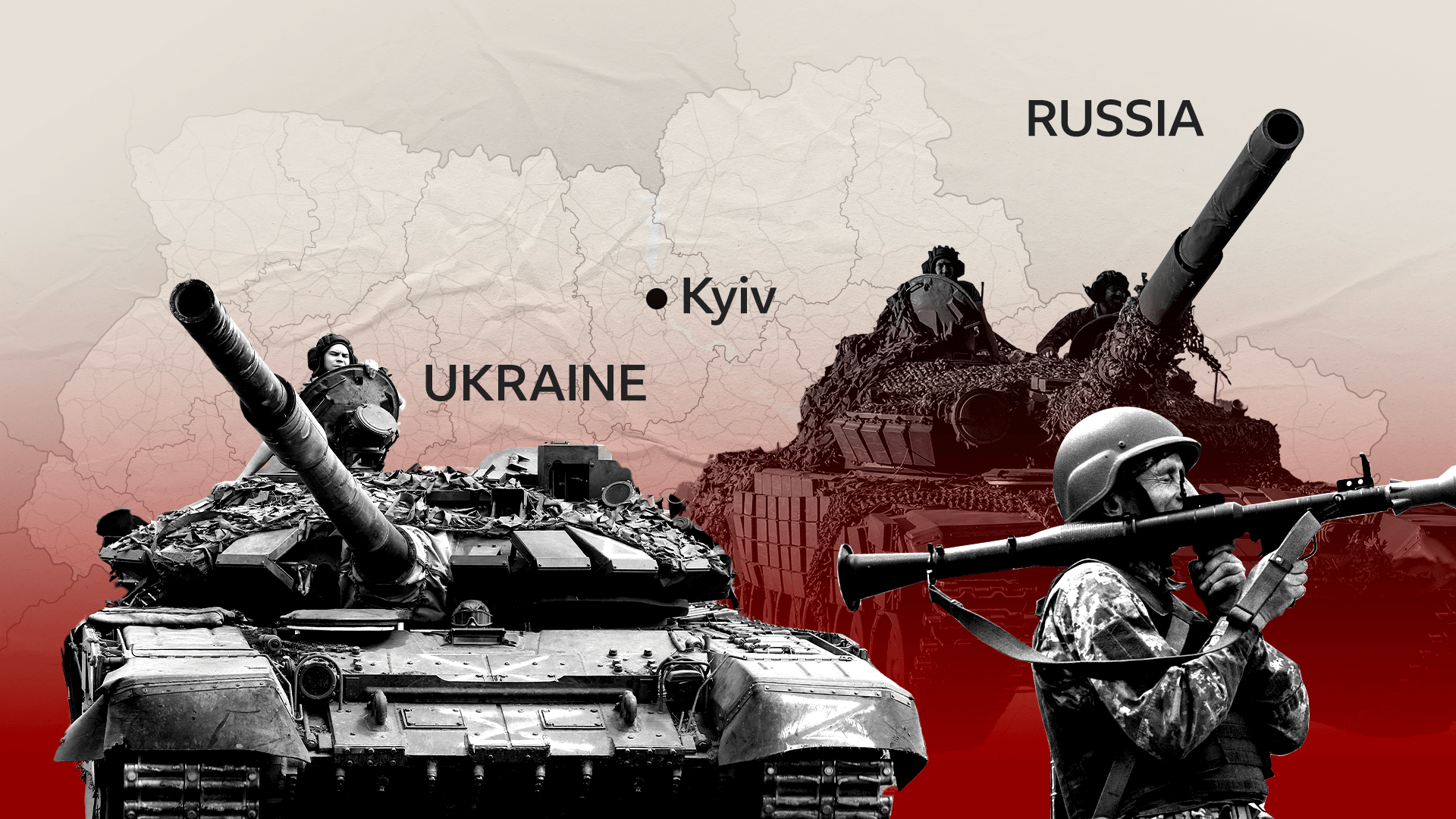Donbas: Battle in east Ukraine expected to be bloody and decisive
- Published
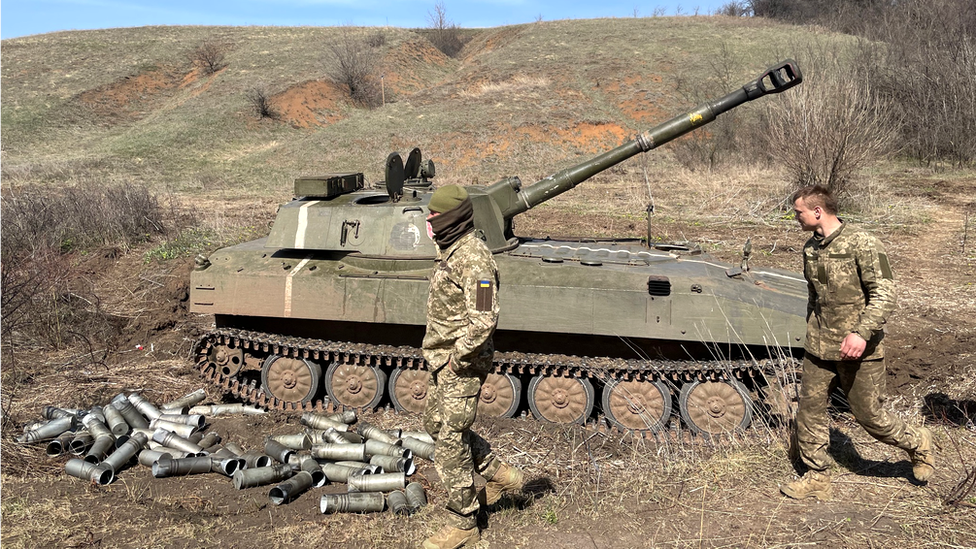
Much of the war in eastern Ukraine has been fought in areas of open ground
People in eastern Ukraine know the Russians are about to step up their offensive here. Even the dogs on the streets seem to know, and can be heard barking whenever there's a heavy thump of artillery in the distance.
Hundreds of thousands of people have already fled to the relative safety of western Ukraine. Once again large columns of Russian vehicles have been spotted by satellite - this time heading towards the east.
Here in the Donbas we've also seen signs of Ukraine bringing in more military equipment, including armoured vehicles and longer range air defence systems. But not in the volume of Russia's reinforcements.
Ukraine may be being more tactically astute about their movements, or simply have less. Both are probably true.
Many believe this next phase of the war in the east could decide the outcome of this conflict. Many also expect it to be bloody.
At our request, the Ukrainian army showed us one of their artillery lines that is already shelling Russian positions. The only way to get there was to travel in an armoured vehicle across fields. Much of the war here will be fought across open ground. Ukrainian troops will also take advantage of their already dug in defensive positions.
We nervously looked up for any sign of Russian aircraft, but Ukraine still has air defences. We saw a vehicle fitted with radar and rockets and anti-aircraft guns, which we were asked not to film.
There were more air defences at the artillery positions, including short-range Stinger anti-aircraft surface-to-air missiles supplied by the West. They were out of their box and ready to fire, should the Russian drones or jets target their positions.
Such weapons have made a significant impact in this war - while Russia may have an advantage in the air, it still doesn't have control of the skies.
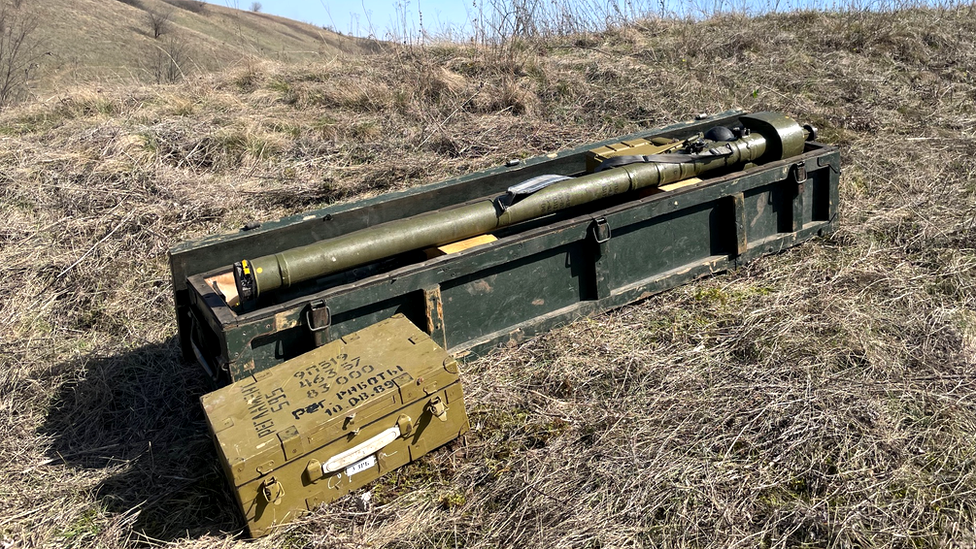
Weapons provided by the West have helped Ukrainian forces to prevent Russia controlling the skies
Ukraine's artillery is, so far, also proving effective. We did not see long lines of artillery, but instead a small mobile unit ready to move at a moment's notice. While the Russians have a bigger army, Ukraine's forces rely on well prepared defences and mobility.
Volodymyr, a Ukrainian soldier, told me they had to change position regularly to avoid being targeted.
"If we stay in one position for more than a couple of days, then we become the target," he said. He also highlighted another key difference; Ukraine's artillery was targeting military positions - Russian artillery - while Russia, he said, was also targeting towns and cities.
"They're shooting at our cities because they want people to panic. They want our people to give up," he said.
Russia will struggle to make significant advances while Ukraine continues to have effective air defences and artillery. Both sides have, until now, had similar levels of forces in the region - around 30-40,000 troops.
But Western officials say Russia is aiming to double or even triple its strength in the region. Though they add that might take considerable time as Russia reconstitutes its units. Some estimates suggest Russia has lost 20% of its strength since the start of this war.

War in Ukraine: More coverage

Ukraine also has some of its most battle-hardened troops in the region. They've been fighting Russian-backed separatists here for the past eight years. They're well dug in, using fortified trenches and defensive positions. Some of the troops may look tired, but morale appears to be high.
Ukraine is also being given real time intelligence on Russia's military movements by their Western allies. They won't discuss details, but both Ukrainian and Western officials have confirmed this to the BBC.
Russia still has a numerical advantage - tens of thousands more troops being redeployed after its failed offensive around the capital, Kyiv. Russia is also now fighting on fewer fronts and its supply lines won't be as long.
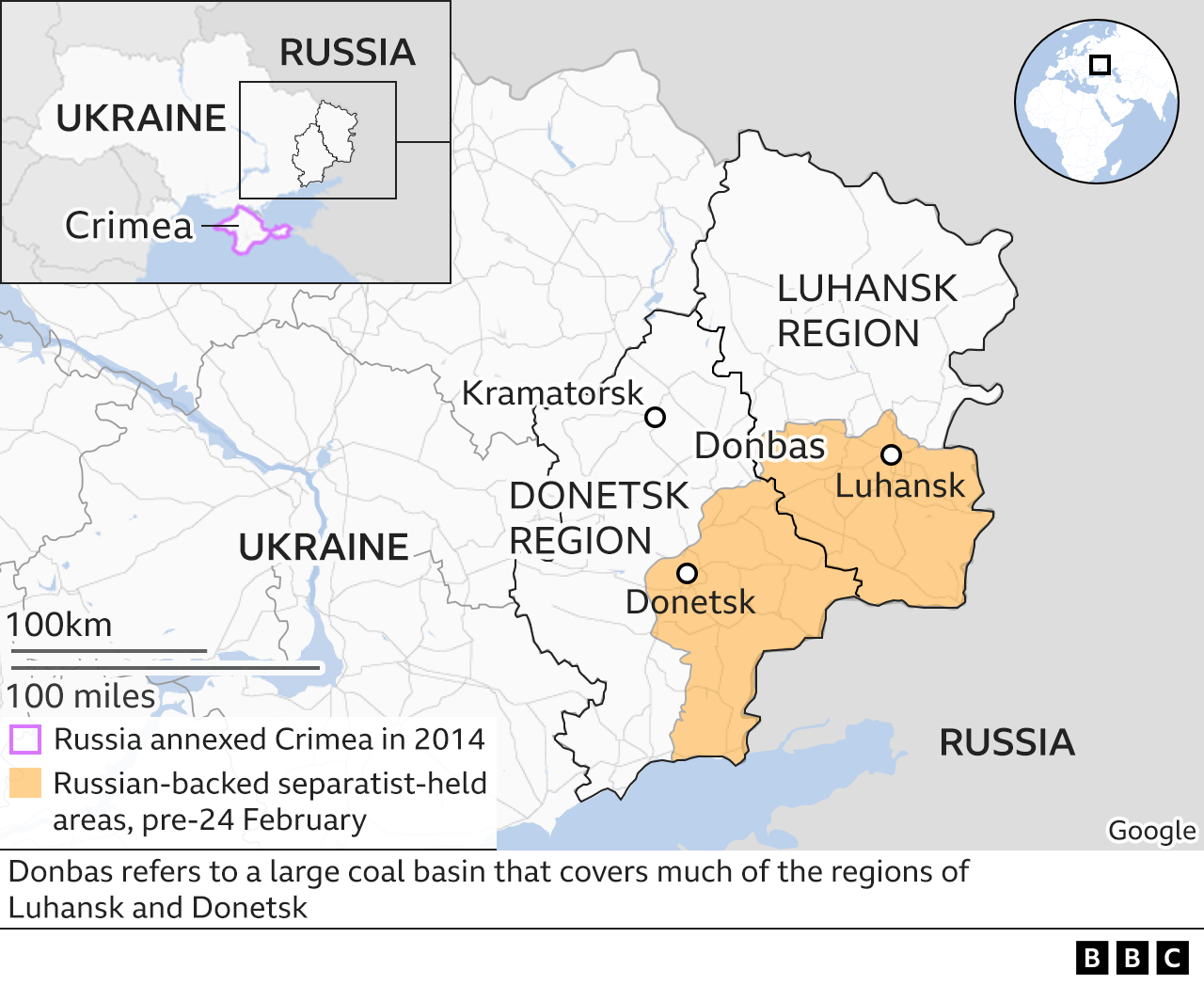
Ukraine also has another problem to contend with - the enemy within. In the city of Kramatorsk we went on a police patrol looking for Russian saboteurs.
There is more pro-Russian sentiment here than other parts of Ukraine. The police stop and search passers-by, looking for evidence they might be Russian saboteurs. They search mobile phones. They're worried about people passing on information and photographs of Ukrainian defensive positions.
The local police chief, Col Alexander Malish, told me people are arrested and handed over to the intelligence services most days.
"I don't understand what's in their heads... maybe [it is] Russian propaganda? I think that after the war the people of Ukraine will have to work out what to do with people who've been helping the country of the occupying forces." Col Malish said it was part of Russia's hybrid warfare.
Several cities in eastern Ukraine have been targeted by Russian airstrikes, artillery and missiles. At a cemetery in Kramatorsk - where more than 50 people were killed in a Russian strike on a railway station last week - fresh graves are already being dug.
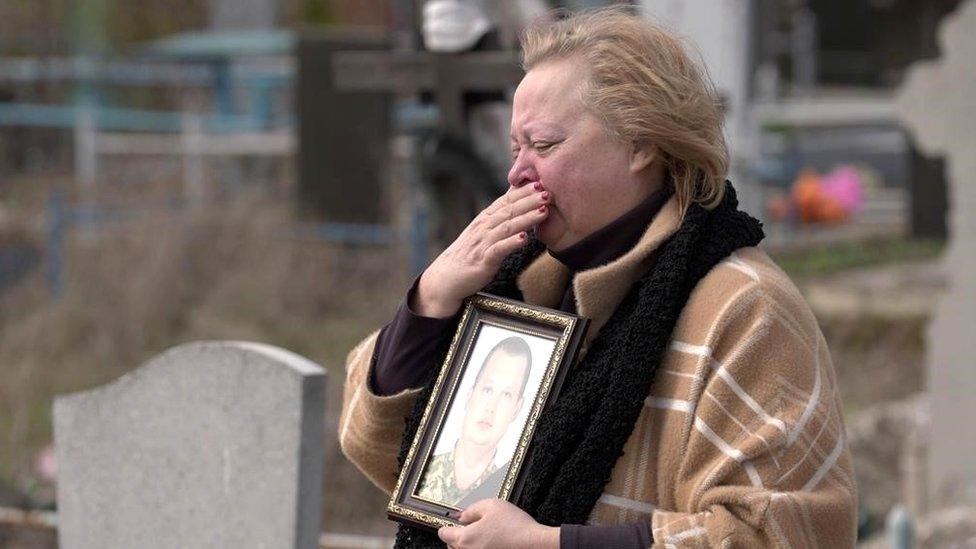
Tatiana clutches a photograph of her son Alexander Tislenko, who was killed while fighting with the Ukrainian forces
We watched the burial service of a recent Ukrainian casualty from a distance.
Alexander Tislenko was 34 when he was killed on the frontline, fighting for the Ukrainian special forces. All his mother, Tatiana, knows is that his position was being targeted by Russian Grad rockets before she was told he had been killed in combat.
Tatiana held a photograph of Alexander above his coffin, draped in a Ukrainian flag. She couldn't stop crying. Alexander was her only child.
Later, Tatiana told me: "Our son has dedicated his life to his homeland Ukraine. I'm so proud of him, but it's such a big loss. It's a loss I cannot forget during my lifetime. I curse [Russian President Vladimir] Putin."
Over the coming weeks here in eastern Ukraine there will be many more grieving mothers of both Ukraine and Russia. This phase of the war will be difficult for both sides. Both are likely to suffer significant losses. But the stakes couldn't be higher.
Related topics
- Published10 April 2022
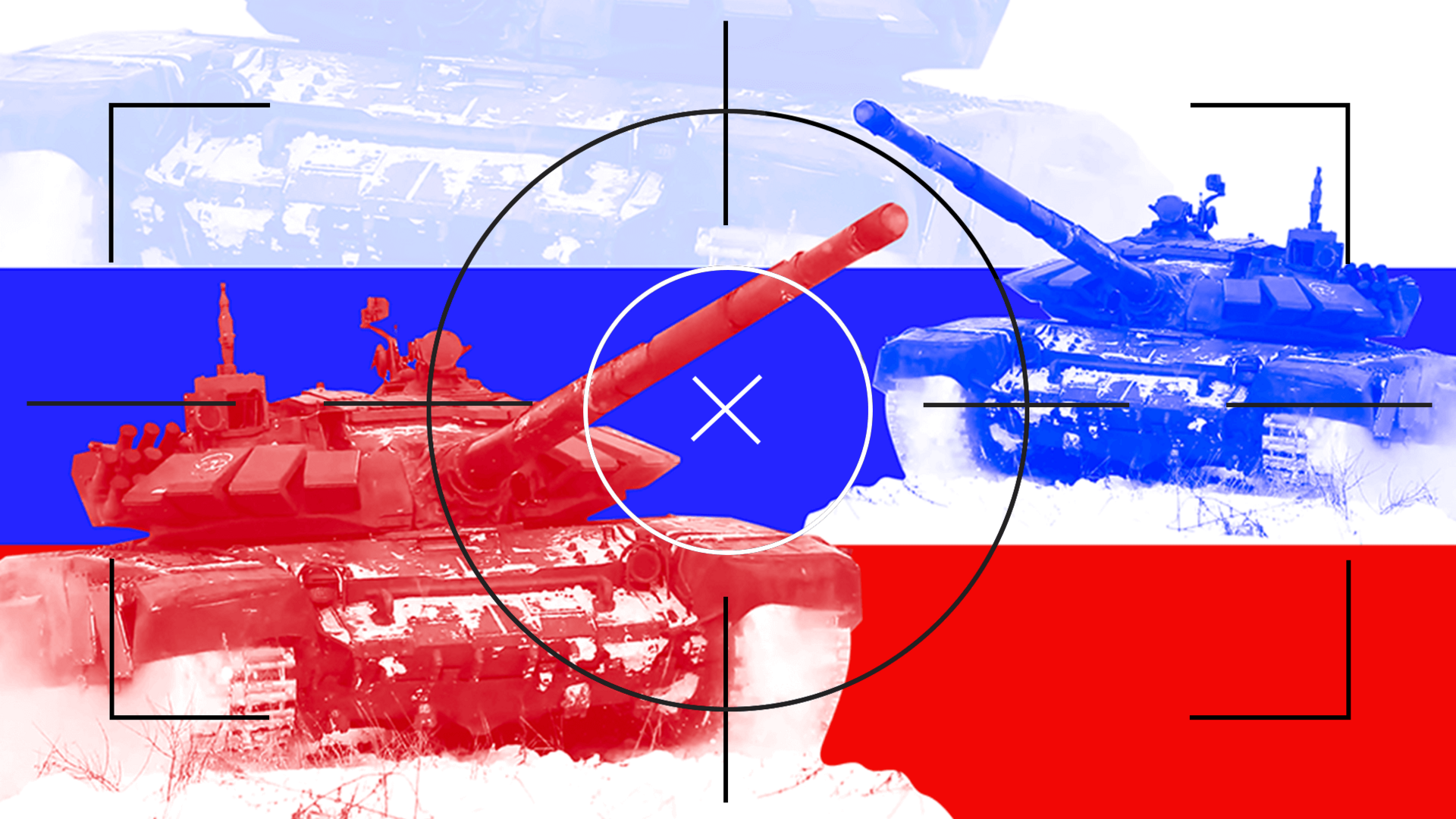
- Published6 April 2022
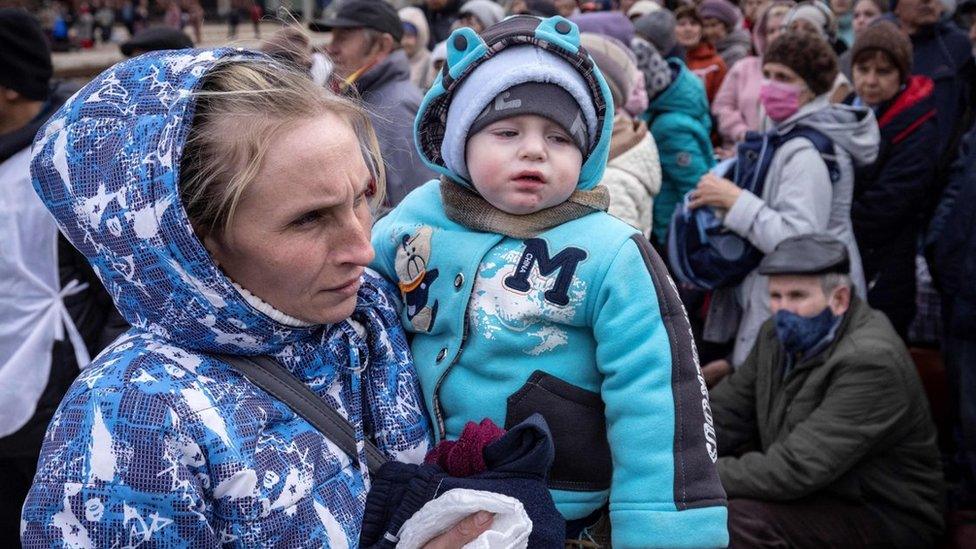
- Published8 March 2022
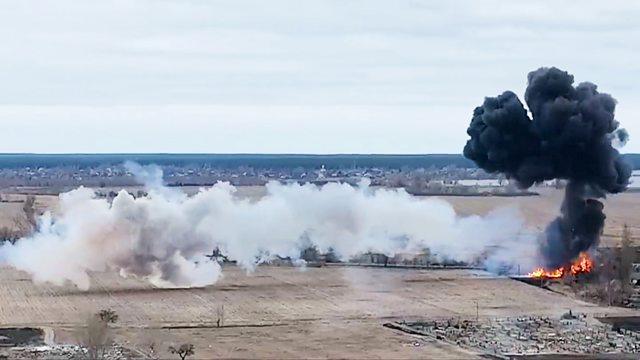
- Published9 April 2022
